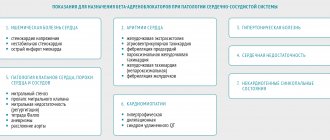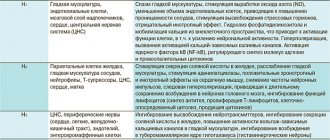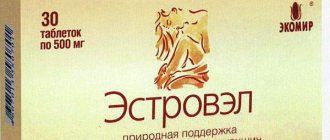In what dosages and how to give the tablets
Tablets should be given once a day. There should be 1–3 mg per 1 kg of pet’s body weight. The exact amount of the drug is determined by the veterinarian. The course of treatment in most cases does not exceed one week. It is best to give tablets before bed, 1-2 hours after feeding. In this case, the required amount of medicine should be crushed and mixed with water, then draw the liquid into a syringe without a needle and pour it into the animal’s mouth.
In order to give the dissolved tablet to your pet, you can use a syringe without a needle.
If the cat is obedient and calm, then the tablet can be placed on the root of the tongue. Then it is recommended to stroke the pet on the neck, which will provoke a swallowing reflex. It is important to make sure that the medicine gets into the stomach, because cats often manage to spit it out. You can give the pill using a special pill syringe, which is sold at any veterinary pharmacy.
To give your cat medicine, you can use a special syringe for pills.
The active ingredient of the drug belongs to the second generation H2-blockers, therefore it is currently used less and less, since there are more effective drugs (4–5 generations).
A friend's cat got sick. The pet's condition was extremely serious, so everyone thought that he had some kind of serious infection. After a series of tests, the doctor diagnosed pancreatitis. But judging by the results, there was also something wrong with the stomach. An ulcer was suspected. A number of medications were prescribed, including an H2 blocker. A few days later, the cat began to recover, which everyone was very happy about, since before that he couldn’t even get up. In addition, the temperature returned to normal. Complex treatment helped save the animal.
Contraindications and adverse reactions
The medication should not be used to treat pregnant females, as well as kittens weighing up to 1.5 kg. The medicine can provoke hypersensitivity reactions in elderly and weakened animals. The solution and tablets are contraindicated for nursing cats. The drug can provoke an allergic reaction in a pet, which manifests itself in the form of itching and hives, but quickly passes when taking antihistamines such as Suprastin, Zodak and Tavegil.
Tavegil eliminates allergy symptoms if they occur while taking Acyloc
The following symptoms may occur during treatment with this medication:
- stool disorders;
- headache;
- coordination problems;
- loss of activity;
- disturbances in liver function;
- joint pain;
- blurred vision;
- bronchospasm;
- muscle pain.
Rarely, during therapy with tablets and solution, hair may fall out, but this occurs only when the dose is exceeded and with prolonged use of these forms.
Instructions for use
The medication is available in two forms - tablets and solution for intravenous or intramuscular administration. For the treatment of cats, Acyloc in ampoules is the safest and most effective. After examining the animal, the doctor must prescribe a dosage. After this, you need to inject the solution into the cat's hind paw pad. The best way to do this is to use an insulin syringe. It should be noted that when a pet suffering from vomiting is admitted to a veterinary clinic, doctors give it an Aciloc injection. Veterinarians warn that the process of administering the solution is not painful for cats, however, you should not inject it for more than seven days, otherwise your pet may experience discomfort, as well as inflammation of the tissue at the injection sites. Also, you should not abruptly stop using the drug, otherwise withdrawal syndrome may occur. In other words, all efforts aimed at treating your pet will be in vain. If the medication is abruptly discontinued, the symptoms of the disease will manifest themselves with even greater force, and in severe cases, new negative conditions may arise. Note that, compared to tablets, Acyloc injections are most often used in veterinary practice. They ensure that the drug enters the animal’s body and begins to act. While tablets are very difficult for cats to digest. As a rule, they come back out when vomiting.
Medicines similar in mechanism of action - table
| Name | Release form | Active ingredient | When is the drug prescribed? | Contraindications | Side symptoms | Can it be used to treat pregnant and lactating cats? | Price |
| Ranitidine | pills | ranitidine |
|
|
| No. | From 31 rub. |
| Famotidine |
| famotidine |
|
|
| No. | From 120 rub. |
| Cimetidine | pills | cimetidine |
| intolerance to the active component |
| No. | From 75 rub. |
Medicines with similar effects - photo gallery
Cimetidine is a first-generation H2-histamine receptor blocker. Ranitidine is a second-generation H2-histamine receptor blocker. Famotidine is a third-generation H2-histamine receptor blocker.
What is the drug for?
Acylok is intended for the treatment of gastrointestinal dysfunctions in humans. But it has also been used successfully in veterinary medicine for a long time.
The medicine is recommended for exacerbations of various chronic diseases of the digestive system: gastritis, colitis, esophagitis. The drug is included in the treatment of ulcers of any type: symptomatic, gastric or duodenal ulcers.
The drug stops an attack and alleviates the condition of pancreatitis and other functional disorders of the pancreas. In veterinary clinics, Acilok injections are prescribed to stop vomiting in an animal when oral medications cannot be given.
The medication is also used as part of complex maintenance therapy for chronic diseases of the kidneys and urinary system.
The drug smoothes out the acute symptoms of diseases. Gives the cat the opportunity to return to a proper diet. Acylok reduces the production of hydrochloric acid, which is the basis of gastric juice. Normalizes appetite and digestion process.
The medicine is quickly absorbed into the gastrointestinal tract and begins to act within an hour after administration. Reaches maximum concentration after 2 hours. The beneficial effect lasts more than 12 hours, after which the active substances are gradually eliminated from the body through urine and feces.
Side effects
Veterinarians warn that the medicine causes hypersensitivity reactions. Especially in cats older than 7 years and in animals in a state of exhaustion. The product should not be used if the pet's weight is less than 1.5 kg.
The range of side effects from the drug is wide. Sometimes Acilok provokes dysfunction of the cardiovascular system, for example, bradycardia, ventricular arrhythmia.
Disturbances from the digestive system are periodically observed: nausea, diarrhea or constipation. Symptoms include dry mouth mucous membranes, increased drowsiness, and convulsions.
In isolated cases, cats show allergic reactions to the drug: hives, redness around the mouth, itching, hair loss.
If any of the listed signs appear, the dose should be cancelled. If your pet's condition worsens, consult your veterinarian.
Acyloc is contraindicated in animals suffering from chronic renal or hepatic dysfunction. And also in the presence of malignant neoplasms of the digestive organs.
Reviews
Acylok is a professional remedy that veterinarians recommend if the cat’s condition is critical. Owners who use the tablets note the high reliability of the drug and the speed of the effect.
Svetlana, cat owner, Tomsk:
“We’ve used it a couple of times in 7 years, always successfully. The medicine was prescribed by a doctor and purchased at the veterinary pharmacy at the clinic. Improves your well-being very quickly, in a couple of hours. I didn’t know that the product should not be given to kittens; ours is already an adult.”
Vladimir Nikolaevich, veterinarian, Moscow:
“Acylok is a remedy that helps to “pull out” an animal on the brink. There are times when minutes count, and there is no point in giving other medications.
The acyl lock works within the first hour. In practice, one injection was enough for me to relieve almost all the symptoms. And then we switched to gentle home therapy with clinical supervision.”
Nikolay, owner of a Siamese cat, St. Petersburg:
“My Siamese is stubborn, like all his breed relatives. So the only thing that worked for us was injections, he flatly refused to take the pill, and his condition kept getting worse. I myself don’t know anything about injections, so I took him to the clinic. In 5 appointments, a severe exacerbation of gastritis was eliminated, thanks to the doctors.”
Compound
The solution for injection of Acylok contains the active ingredient ranitidine, as well as several auxiliary components - potassium dihydrogen phosphate, phenol, water for injection, sodium hydrogen phosphate dihydrate. Numerous analogues of Acylok are presented on the pharmacological market. These are the drugs Ranitidine, Zantac, Gistak, Ranisan, Rantak, Raniberl and many others. Among all of these, the most common is Zantac, an Italian product that is also available in ampoules.
Storage conditions
Acylok should be kept away from children and animals in a place protected from sunlight. The unopened solution can be stored for 2 years; it cannot be refrigerated. The drug should be placed in a room where the temperature does not exceed 25 degrees.
Acylok instructions
Visit the profile section of our Medical Examination forum or leave your feedback in the comments below. More opinions means more useful information, it will be useful to someone. If there are good and interesting videos on the topic of the article, write and I will insert them into this publication.
When is the medicine prescribed?
The medicine is used to eliminate inflammatory diseases of the stomach in cats. The drug is indicated for gastritis, ulcerative and erosive lesions of the gastrointestinal tract. The solution helps normalize digestion and eliminates pain in the pet’s stomach. The medication can also be used in the complex treatment of pancreatic diseases in animals. This drug can be prescribed to pets during the postoperative period to prevent the risk of gastric bleeding.
Gastritis in cats is treated with Acylok
H2 blockers stimulate the production of mucus, thereby accelerating the regeneration of inflamed tissues. In addition, this line of products has a beneficial effect on the motor function of the gastrointestinal tract, promoting the movement of food through all departments.
Cannot be given to pets
Doctors have identified a number of contraindications under which Acylok should not be given to cats:
- pregnancy;
- lactation period;
- hypersensitivity to ranitidine and other components;
- oncological formations (and especially in the esophagus);
- kidney diseases.
What harm can it do?
During therapy with this drug, some animals experience hair loss.
It is important to contact the clinic so that the veterinarian can prescribe treatment. Because the wrong dosage of Aciloc negatively affects the functioning of the cat’s body. The following adverse reactions have been recorded in animals:
- nausea;
- stomach upset;
- constipation;
- drowsiness;
- profuse hair loss.
Learn about essential drugs in animals
- Vaccination of puppies, scheme
- Rabies vaccination schedule for cats
- Vaccination of small pets
- How to vaccinate a kitten?
- Why vaccinate dogs against rabies?
- What vaccinations for kittens?
- Nobivac triquet trio for cats
- Nobivak dhppi
- What is the first vaccination for a puppy?
- Vaccinate your cat
- Tick vaccination for dogs
- What vaccinations do dogs get?
- Ursofalk - dose for a cat
- Serenia for animals
- Ursofalk suspension for dogs, dosage
- Marfloxin for veterinary medicine
- How to use serenia in dogs
- Graying in cats
- Heptor for dogs: dosage
- Lidocaine for dogs
- Heptor in cats
- Lidocaine for cats
- Heptral in dogs
- Can cats use marfloxin?
- Marfloxin for cats - instructions
- Heptral in cats (instructions for use, pharmacology
- Dirofen suspension for cats: instructions
- Vetom 1 for cats
- Instructions: multifel for cats
- Use of fosprenil in cats
^Top
![Table 1. Comparison of the results of treatment with Tribestan for men with oligoasthenozoospermia [7] with mod.](https://laram-halal.ru/wp-content/uploads/tablica-1-sravnenie-rezultatov-lecheniya-tribestanom-muzhchin-s-oligoastenozoospermiej-7-330x140.jpg)




